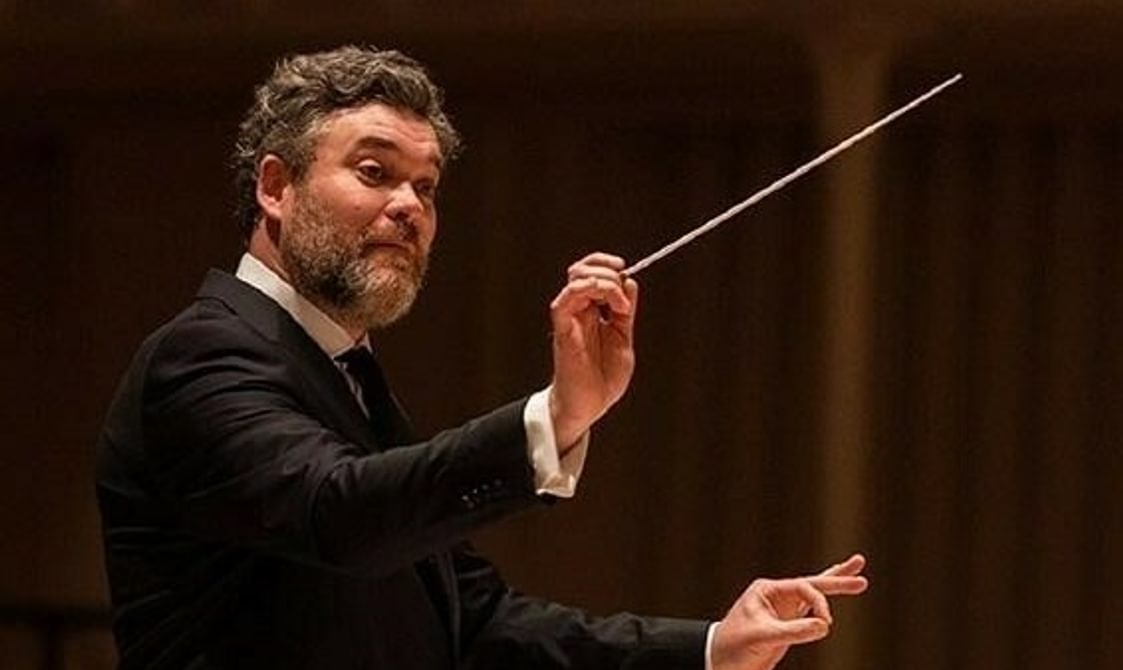
BBC Scottish Symphony Orchestra I
Britten’s Violin Concerto played by Daniel Pioro, the “heavenly” Mahler symphony which Britten so loved, and Judith Weir’s Forest with its fairytale character.
- Judith Weir:
- Forest (13’)
- Britten:
- Violin Concerto, Op.15 (35’)
- Mahler:
- Symphony No.4 in G (58’)
BBC Scottish Symphony Orchestra
Ryan Wigglesworth conductor
Elizabeth Watts soprano
Daniel Pioro violin
Image gallery
A gallery slider

Daniel Pioro
Credit : © Raphael Neal
Elizabeth Watts

Ryan Wigglesworth
Credit : © BBCMain image: Ryan Wigglesworth © BBC
The Violin concerto is quintessential Britten: recurring drama, daring virtuosity, and searing harmonies that – though composed long before Snape Maltings Concert Hall came into being – inhabit this special space perfectly. With this performance Pioro joins the canon of leading violinists to have played Britten's iconic work here over seven decades of the Aldeburgh Festival.
The special talent of Elizabeth Watts – “one of the most beautiful voices Britain has produced in a generation” (International Record Review) – is featured in Mahler’s Fourth Symphony, his sunniest. The whole work arises from a simple child-like song, “The heavenly life”, that the composer wrote a decade before the symphony itself. It is a work of tremendous, almost celestial, beauty which will sound stunning in the hands of this top-class orchestra. We are reminded too how the Aldeburgh Festival has developed over the years; being one of Britten’s favourite works to conduct, its first outing here was at Orford Church with the London Symphony Orchestra in the 1961 Festival.
In similar fashion, Judith Weir began Forest “with nothing but the opening melody in mind. As I arranged this apparently simple material for an initial ensemble of four solo violas and cello, the intertwining lines seemed to be sprouting musical leaves; or, in other words, interesting melodic and harmonic fragments were being generated almost as if in a process of nature. After observing a few more pages of these self-propagating complications take shape, I decided on the title Forest. Nearly everything in the piece has grown from the tiny musical seeds encountered in the opening bars, and the composition has unfolded in a particularly natural and organic way.
“Within the final pages, a different, more distinct world is occasionally glimpsed. Perhaps this is the forest of folklore and prehistory, rather than the animated and burgeoning biological site examined in the main part of the music. On reaching the conclusion, a region of faint string chords, I felt rather like a fairytale character pressing deeper and deeper into a mysterious prospect of trees”.
Come to a pre-performance talk before the performance to learn more about the creative process.
This performance is being broadcast live by BBC Radio 3 and will be available afterwards on BBC Sounds.


Explore the Festival
The 75th Aldeburgh Festival of Music and the Arts
07 – 23 June 2024